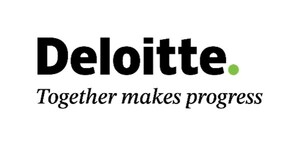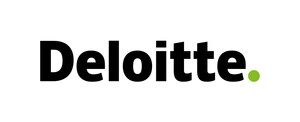
NEW YORK, March 15, 2017 /PRNewswire/ -- Deloitte recently completed "Business Chemistry in the C-suite," a study on the Business Chemistry types of 661 C-suite executives, finding two of four primary Business Chemistry types – which highlight both similarities and differences in working styles – account for nearly two-thirds of the sample. Pioneers, who value possibilities and spark creativity, comprise 36 percent; while Drivers, who value challenge and generate momentum, make up 29 percent. Guardians, who value stability and bring order, represent 18 percent of the sample; and Integrators, who value connection and draw teams together, represent 17 percent.
The study, conducted by the Deloitte Greenhouse™ Experience group, also suggests that while C-suite executives are similar in many ways to a typical professional, they differ in particular ways related to their perspectives on approaching problems and interacting with others. As compared with the general business population, C-suite executives in this sample are significantly more likely to:
- Be big picture thinkers who are competitive and willing to tolerate conflict;
- Make decisions more quickly without worrying about the popularity of those decisions; and
- Be quantitative and comfortable with ambiguity
However, they are similar as compared to a typical business professional with regards to practicality, duty, discipline, imagination, relationship orientation, openness to experimentation and expression.
"We're often asked about the relationship between Business Chemistry types and leadership, and this study provides one window of insight," said Kim Christfort, managing director, Deloitte LLP, and national managing director of the Deloitte Greenhouse Experience group. "While Pioneers and Drivers made up the majority of the C-suite executives in our sample, it's important to note that many different external and internal factors play into an individual reaching the C-suite. Factors range from the demands of today's fast-paced business environment, to varied career aspirations of an individual. This suggests that organizations may benefit from cultivating less visible – but valuable – working styles to complement their C-suite ranks, as research has pointed to the gains in performance of organizations that tap into cognitively diverse teams."
The study correlated the Business Chemistry assessment responses of C-suite executives, including CEOs (chief executive officers), CFOs (chief financial officers), CIOs (chief information officers), CMOs (chief marketing officers) and CHROs (chief human resource officers), to patterns of behaviors and preferences based on Business Chemistry®, a system designed to facilitate stronger relationships and better teamwork in the workplace.
The study also revealed differences in the proportion of Business Chemistry types in the C-suite related to function, organization size, industry and gender. For example, while Pioneers were more prevalent in the C-suite overall in our study, Drivers (37 percent) and Guardians (26 percent) were the two top CFO types represented, while the CIO role contained relatively similar proportions of Drivers (37 percent) and Pioneers (36 percent). Similarly, in the largest organizations in our sample, those with more than 100,000 employees, the proportion of C-suite executives who were Drivers (38 percent) outpaced the proportion of Pioneers (29 percent); and in organizations with more than $10 billion in revenues, Drivers and Pioneers each represented 34 percent of the C-suite.
Our research shows gender differences between Business Chemistry types, both within the C-suite and the general business population. This study found both women and men in the C-suite were most likely to be Pioneers, but a higher proportion of female executives were Integrators (27 percent) than Drivers (22 percent). By contrast, a higher proportion of male executives were Drivers (33 percent) than Integrators (12 percent).
Additionally, there are self-selection factors at play, including varied career aspirations. When 13,885 professionals in a separate study were asked what they most aspire to be when it comes to their careers, the overwhelming majority of Drivers (68 percent) and Pioneers (67 percent) chose "Leader." The top three choices for each type were:
- Drivers: "Leader" (68 percent), "Top performer" (52 percent), "Innovator" (36 percent)
- Pioneers: "Leader" (67 percent), "Innovator" (44 percent), "Top performer" (33 percent)
- Integrators: "Leader" (51 percent), "Team player" (48 percent), "Mentor" (40 percent)
- Guardians: "Leader" and "Top performer" (tied at 50 percent), "Team player" (46 percent)
"These results highlight that not everyone aspires to reach the C-suite: They may find value in playing different roles within organizations, or find a fast-paced, potentially contentious and competitive daily environment unappealing," said Suzanne Vickberg, Ph.D., senior manager, Deloitte LLP and applied insights lead, Deloitte's Greenhouse Experience group. "Our previous research has also shown how different Business Chemistry types react to stress, which may also play a role. Leaders, like the team members they lead, often find it easiest to work with their own Business Chemistry types – but teams, and peers in the C-suite, are typically composed of all types. This is why we suggest leaders identify the work styles of team members and actively manage differences, so the real benefits of team diversity can come to the forefront."
For more information on the findings of the report, including detailed C-suite Business Chemistry percentages by function, organizational size and industry; recommendations for leaders and team members to get the most of working with different and opposite Business Chemistry types; and the methodology used, please see the full report.
About Deloitte
Deloitte provides industry-leading audit, consulting, tax and advisory services to many of the world's most admired brands, including 80 percent of the Fortune 500 and more than 6,000 private and middle market companies. Our people work across more than 20 industry sectors to deliver measurable and lasting results that help reinforce public trust in our capital markets, inspire clients to make their most challenging business decisions with confidence, and help lead the way toward a stronger economy and a healthy society.
Deloitte refers to one or more of Deloitte Touche Tohmatsu Limited, a UK private company limited by guarantee ("DTTL"), its network of member firms, and their related entities. DTTL and each of its member firms are legally separate and independent entities. DTTL (also referred to as "Deloitte Global") does not provide services to clients. In the United States, Deloitte refers to one or more of the US member firms of DTTL, their related entities that operate using the "Deloitte" name in the United States and their respective affiliates. Certain services may not be available to attest clients under the rules and regulations of public accounting. Please see www.deloitte.com/about to learn more about our global network of member firms.
SOURCE Deloitte





Share this article